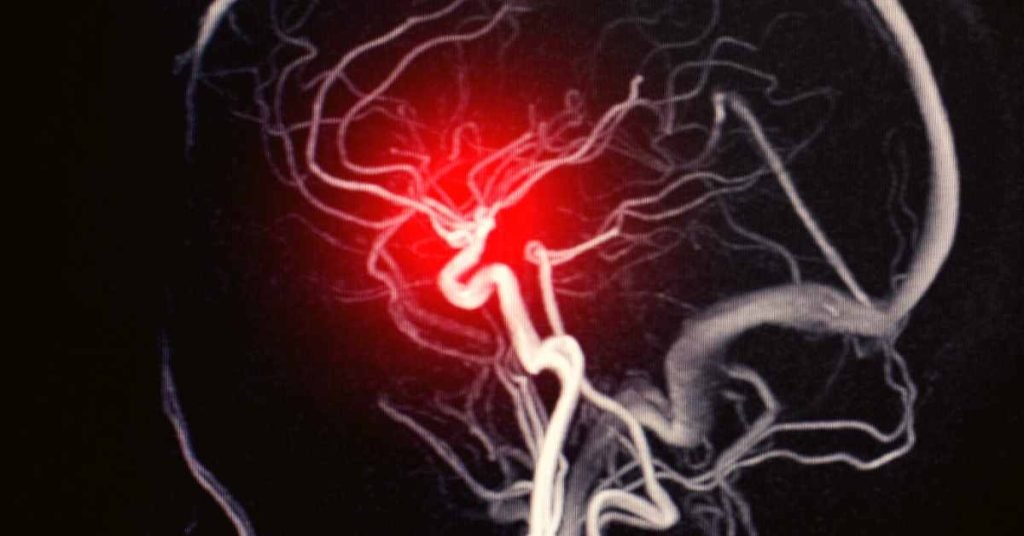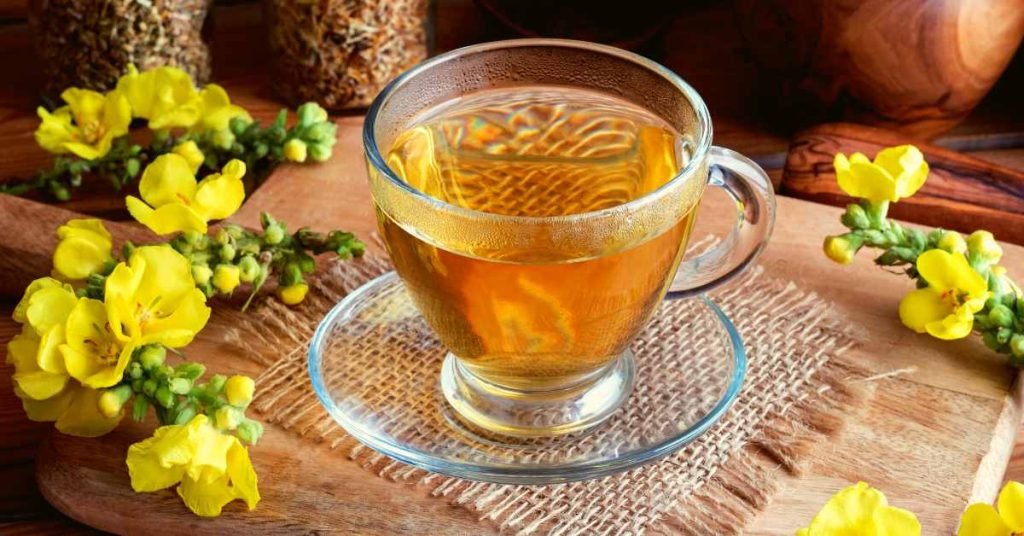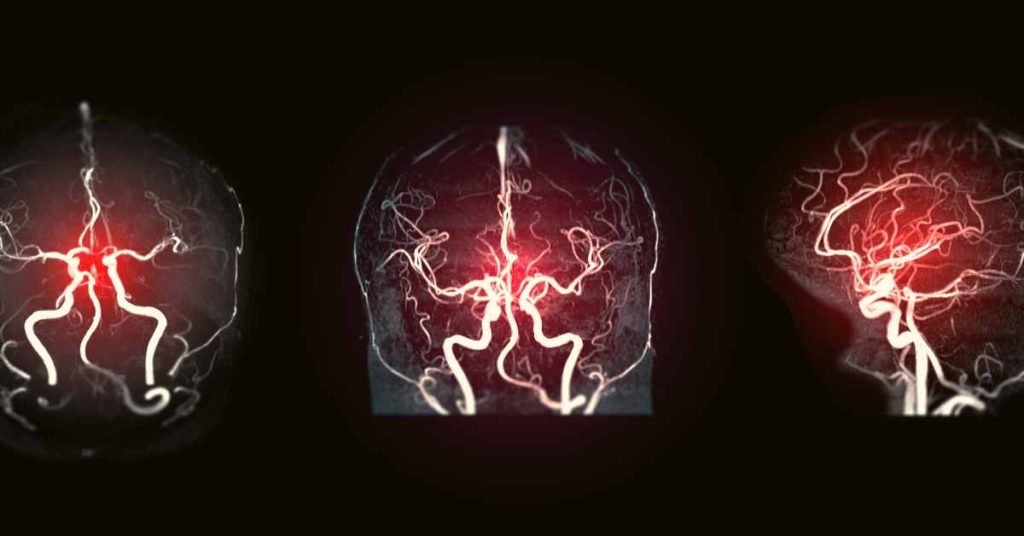A brain aneurysm, a potentially life-threatening condition, occurs when a weakened area in a blood vessel in the brain begins to bulge or balloon.
The risk of rupture and the serious consequences that may follow make it crucial to explore all possible means of prevention and recovery.
While tea is not a direct treatment for brain aneurysms, it can be a part of a holistic approach to support brain health and possibly contribute to the prevention and recovery process.
In this article, we’ll delve into the relationship between tea and brain aneurysms, exploring how tea’s potential benefits in terms of antioxidants, anti-inflammatory properties, and overall well-being may play a role.
Understanding Brain Aneurysms

A brain aneurysm is a weak and bulging area in the blood vessel wall in the brain.
If left untreated, it can rupture, causing a potentially life-threatening hemorrhage. Ruptured brain aneurysms are often associated with severe headaches, nausea, vomiting, and a sudden change in mental state.
Therefore, early diagnosis, intervention, and risk reduction are of paramount importance.
Tea and Brain Aneurysm Prevention
While there is no direct evidence to suggest that tea can prevent brain aneurysms, certain properties of tea, including antioxidants and anti-inflammatory compounds, may contribute to overall brain health and potentially reduce the risk of aneurysm formation.
Antioxidant Properties
Tea, especially green tea, is rich in antioxidants, including catechins and flavonoids.
These antioxidants play a significant role in protecting the body’s cells from oxidative stress and damage, which can be linked to various health issues, including cardiovascular conditions.
The brain is highly susceptible to oxidative stress due to its high oxygen consumption and abundant fatty acids. Reducing oxidative stress in the brain can support overall brain health.

While no specific study has directly examined the relationship between tea consumption and brain aneurysm prevention, the antioxidant properties of tea make it a valuable component of a diet that promotes overall well-being and brain health.
Anti-Inflammatory Effects
Inflammation plays a key role in various vascular diseases, including aneurysms. Chronic inflammation can weaken blood vessel walls and increase the risk of aneurysm formation.
Some types of tea, like ginger and turmeric, contain bioactive compounds with potent anti-inflammatory effects.
Ginger tea, for example, contains gingerol, a compound with anti-inflammatory and antioxidant properties.
Turmeric tea contains curcumin, which has been associated with a wide range of health benefits, including anti-inflammatory effects.
While more research is needed to directly link tea consumption to brain aneurysm prevention, reducing chronic inflammation through a healthy diet that includes anti-inflammatory teas can contribute to overall vascular health.
Blood Pressure Regulation
High blood pressure is a risk factor for aneurysms, as it can weaken blood vessel walls and increase the risk of their formation.
Certain teas, such as hibiscus tea, have been studied for their potential to lower blood pressure.

Hibiscus tea contains anthocyanins, natural compounds that have been associated with blood pressure reduction.
By consuming hibiscus tea as part of a balanced diet, individuals can help regulate their blood pressure, which may indirectly lower their risk of aneurysm formation.
However, it’s crucial to consult with a healthcare provider when managing blood pressure, as other factors also play a significant role in its regulation.
Tea and Brain Aneurysm Recovery
For individuals who have experienced a brain aneurysm or have undergone treatment for one, the journey to recovery can be challenging.
Tea can be a soothing and supportive addition to the recovery process, offering potential benefits for physical and emotional well-being.
Stress Reduction
The emotional toll of a brain aneurysm diagnosis and treatment can be significant. Anxiety and stress are common during the recovery period, and this is where tea can offer comfort and support.

The act of brewing and sipping a warm cup of tea can be a meditative experience that promotes relaxation and mindfulness.
Chamomile tea, for instance, contains apigenin, a compound that binds to receptors in the brain, reducing anxiety and promoting relaxation.
Lavender tea is another option with natural sedative properties that can help alleviate stress and anxiety. By incorporating these teas into the daily routine, individuals can find solace and emotional support during their recovery.
Cognitive Function
Brain aneurysm survivors may experience cognitive challenges as part of their recovery, including memory issues and difficulty concentrating. Some teas, like green tea, contain compounds that have been associated with improved cognitive function.
Green tea is rich in antioxidants, including catechins, which can enhance memory and cognitive performance. While more research is needed to explore the direct impact of green tea on cognitive recovery after a brain aneurysm, it can be a valuable addition to the diet for those seeking cognitive support during their recovery.
Hydration and Overall Wellness
Proper hydration is essential during the recovery process, as it supports overall well-being and aids in physical healing. While water should be the primary source of hydration, certain herbal teas, such as chamomile and ginger, can complement your fluid intake.

Chamomile tea, with its mild diuretic properties, can help flush toxins from the body and promote hydration. Ginger tea can offer comfort and support for digestion, which is crucial for overall well-being during recovery.
Relaxation and Emotional Healing
Tea consumption can be a therapeutic practice that provides a moment for relaxation and emotional healing. The act of brewing and sipping tea can offer comfort and provide individuals with a way to manage their emotions constructively.
Tea rituals can be accompanied by journaling or other creative practices that encourage self-expression and emotional healing.
By incorporating these practices into their daily routine, individuals can create a safe space to address their feelings and seek emotional support during their recovery.
Final Word
While tea is not a direct treatment or preventive measure for brain aneurysms, it can be a part of a holistic approach to support brain health and overall well-being.
The potential benefits of tea, including antioxidants, anti-inflammatory properties, and emotional support, make it a valuable addition to the recovery process for individuals who have experienced a brain aneurysm.

However, it’s important to emphasize that brain aneurysms are serious medical conditions that require immediate attention, diagnosis, and treatment by healthcare professionals.
Tea should not replace or delay medical evaluation and intervention in cases of suspected aneurysms or during the recovery process.
Tea can be a soothing and supportive component of a holistic approach to brain health, but it should always be used in conjunction with medical guidance and treatment.
MEDICAL DISCLAIMER
Itsnevernotteatime.com cannot and does not contain medical/health advice. The medical/health information is provided for general and educational purposes only and is not a substitute for professional advice.




